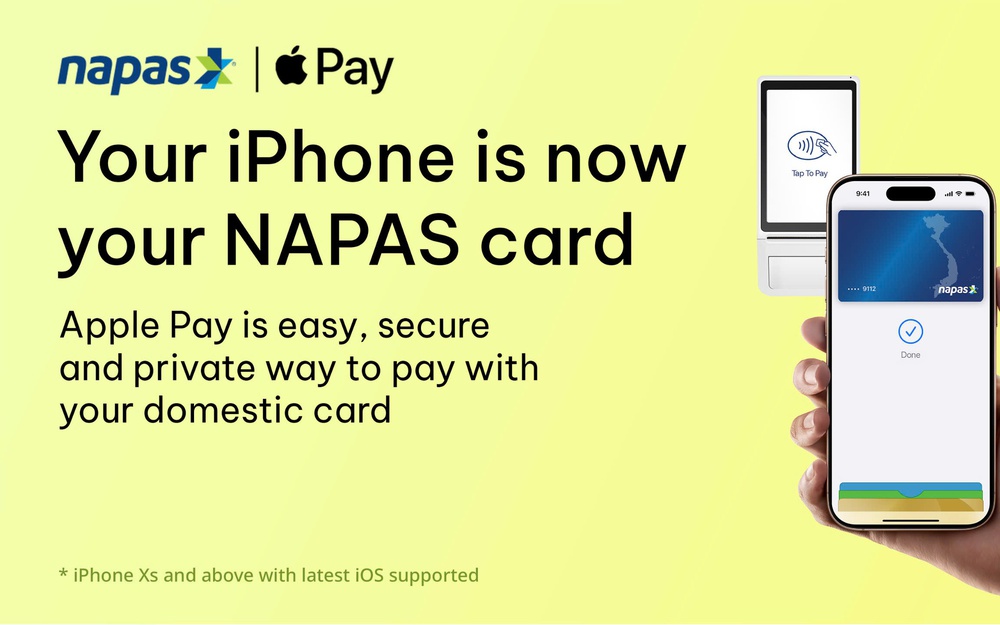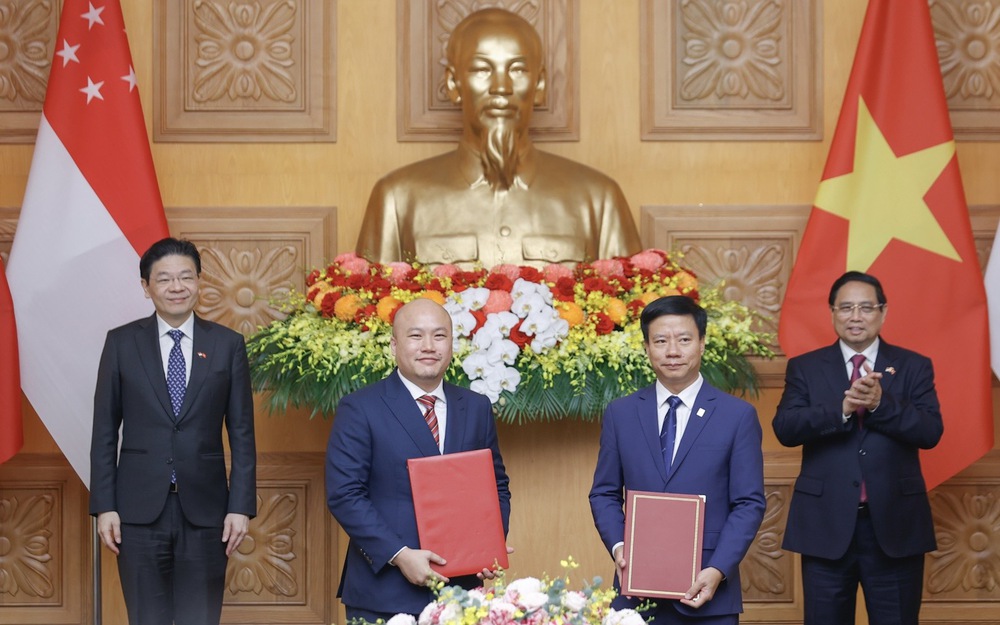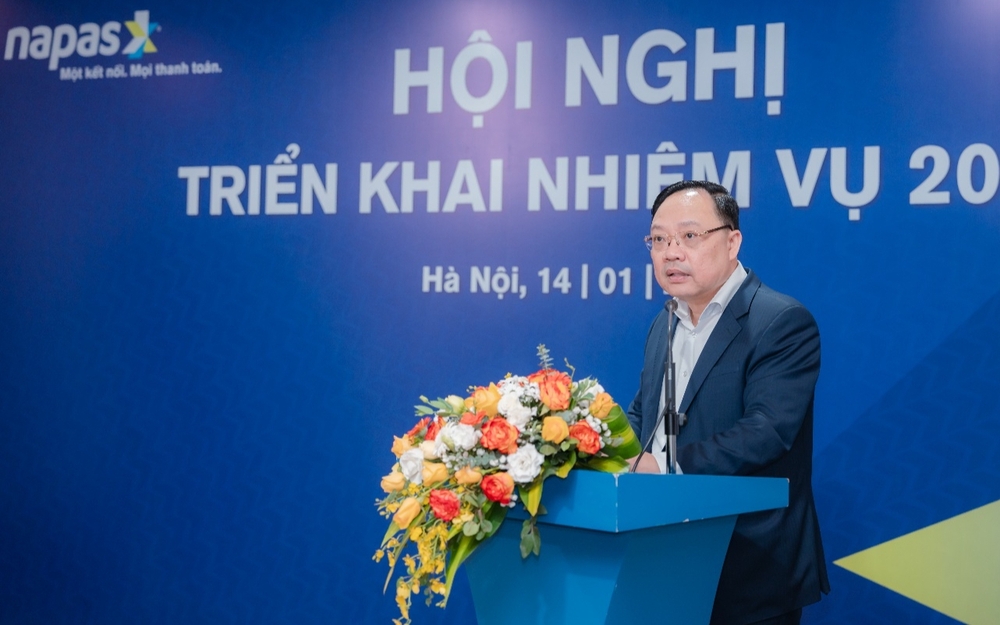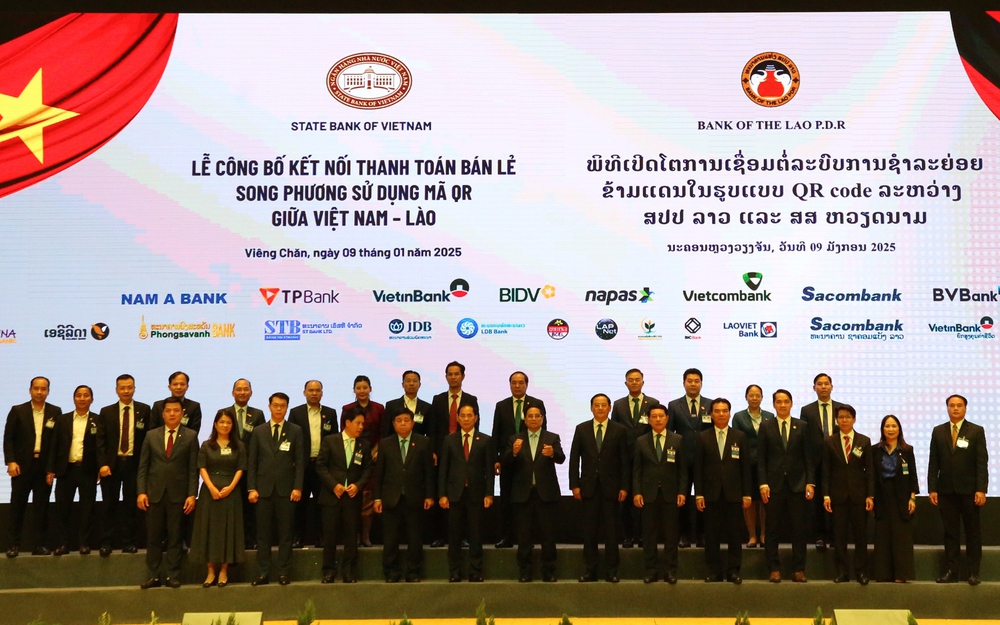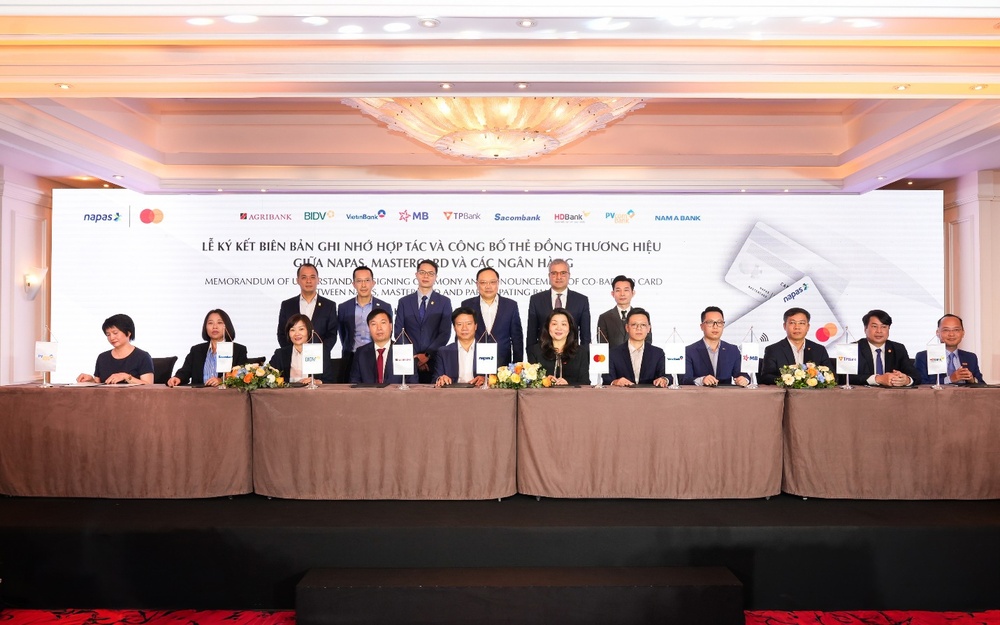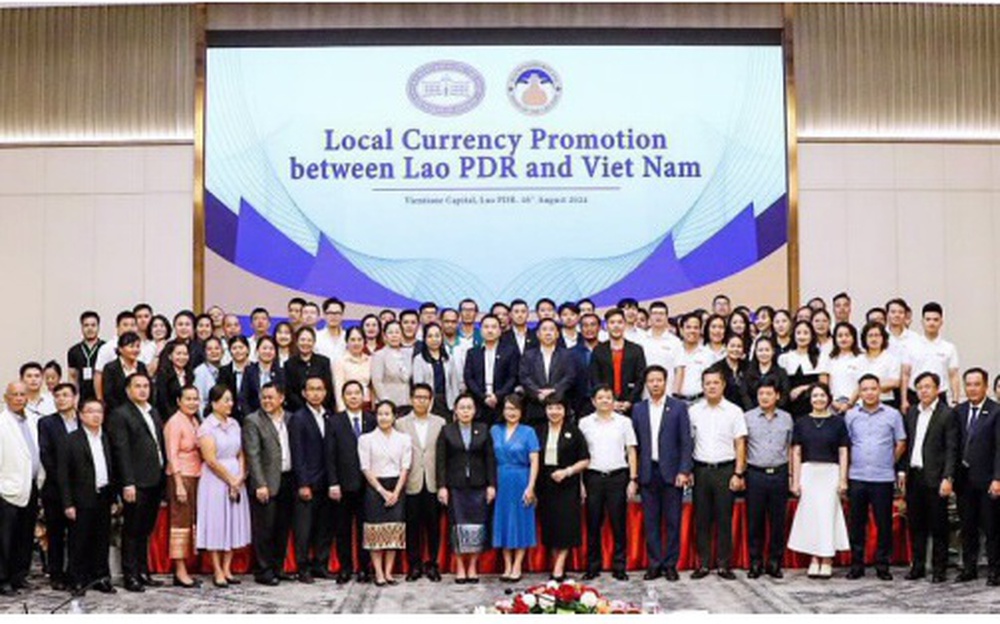On the afternoon of May 21, 2024, at the seminar “Unleashing the Potential of Domestic Credit Cards Towards a Cashless Society” organized by the Labor Newspaper in collaboration with the Payment Department of the State Bank of Vietnam and the Vietnam National Payment Corporation (NAPAS), Mr. Nguyễn Quang Minh – CEO of NAPAS, presented on the topic “Promoting Domestic Credit Cards in Vietnam”.
On the afternoon of May 21, 2024, at the seminar "Unleashing the Potential of Domestic Credit Cards Towards a Cashless Society" organized by the Labor Newspaper in collaboration with the Payment Department of the State Bank of Vietnam and the Vietnam National Payment Corporation (NAPAS), Mr. Nguyễn Quang Minh – CEO of NAPAS, presented on the topic "Promoting Domestic Credit Cards in Vietnam". The presentation covered issues related to the credit card market in Vietnam, highlighting the significant role and potential of domestic credit cards (NAPAS cards) and sharing international experiences in developing domestic cards in some countries in the region.
Mr. Minh began with an overview of the Vietnamese credit card market. According to the Vietnam Card Association (2023), there were over 133 million cards in circulation. The total card usage in 2023 reached approximately 3.7 trillion VND, with total payment transactions around 1.5 trillion VND and cash withdrawal transactions around 2.2 trillion VND.
Focusing on credit cards, the number of issued credit cards in Vietnam remains relatively modest compared to other countries in the Asia-Pacific region, with approximately 11 million cards covering 4% of the population (2022). In contrast, credit card coverage in countries like Thailand is 11%, China 22%, Malaysia 23%, and Singapore 51% of the population.
The NAPAS leader also added that by the end of 2023, the number of domestic credit cards issued by NAPAS in cooperation with banks and financial companies reached about 860,000 cards. Despite a growth of over 234% in NAPAS credit card transactions in 2023 compared to 2022, it still only accounted for 0.5% - 0.9% of total market payment transactions.
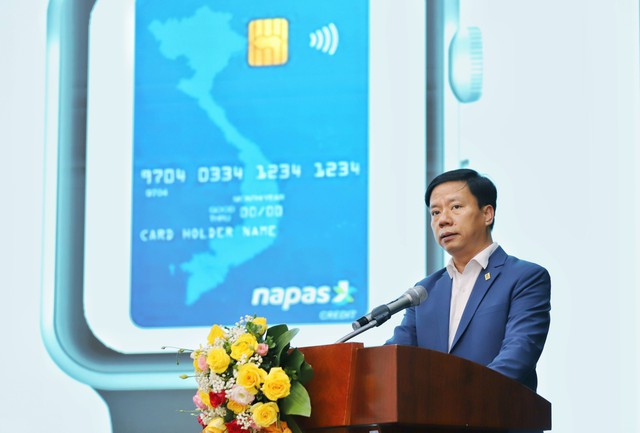
Mr. Minh assessed that there is still considerable room for the development of NAPAS credit cards in the future.
Speaking about the advantages, the NAPAS CEO expects that domestic credit cards will contribute to promoting consumer credit and preventing the issue of black-market lending. Domestic credit cards offer full features such as spending before paying later, long interest-free periods of 45 to 55 days, and not only facilitate widespread payments at domestic points of sale and online but also allow payment/withdrawal in some other countries. Additionally, some features and conveniences of domestic credit cards may appeal to ordinary customers or those accessing banking products and services for the first time, such as simple card issuance procedures and low issuance and transaction fees. Domestic credit cards also provide an effective method for people to access official loan sources from banks and financial companies, especially in cases where customers have sudden financial needs, avoiding high-interest black-market loans.
Not only suitable for the socio-economic conditions of Vietnam, domestic credit cards also bring benefits to issuing and payment organizations. To support market promotion, NAPAS has developed a transparent and clear fee structure to facilitate the participation of various entities. NAPAS's fee schedule only stipulates service fees per transaction and interchange fees (paid by the acquiring bank to the issuing bank), with fee levels appropriate to the benefits of the parties involved. Based on these low and appropriate fees, issuing entities will be able to reduce the cost of issuing domestic credit cards and expand the customer base for consumer credit needs.
In addition to features, NAPAS continuously updates the application of new payment technologies for domestic credit cards to enhance the convenience of card use for end users. In 2023, NAPAS implemented a solution to digitalize payment acceptance devices, allowing mobile devices to be converted into payment devices (Tap to Phone). Shortly, NAPAS will continue to complete the deployment of card digitalization solutions and payment on mobile devices (Tap to Pay).
At the seminar, the CEO of NAPAS also shared useful information related to international experiences in implementing domestic cards in several countries.
Accordingly, the card acceptance network in some countries is higher than in Vietnam. For every 100 people, Vietnam has only 0.55 point-of-sale (POS) devices; meanwhile, China has 2.5 devices, Malaysia 2.3 devices, and Thailand 1.3 devices.
"The readiness of the card acceptance network in Vietnam is still limited compared to other countries in the region. When the number of issued cards is already good, the issue arises, "Where can the cards be used?" Mr. Minh said.
Besides, regarding fee policies, regulatory authorities in some countries have issued fee policies for card transactions to manage and regulate the market. Some countries have established policy frameworks, setting caps on merchant discount rates (MDR) for merchants and interchange fees among related entities (issuing organizations, payment organizations, card switching organizations, electronic transaction clearing organizations, international card organizations, etc.) for participating parties. In Vietnam, card payment organizations negotiate discount fees with merchants, and the interchange fees among related entities are agreed upon by legal regulations.
Referring to licensing regulations for entities developing payment acceptance services, Mr. Minh noted: Some countries have regulations allowing non-bank organizations to provide payment acceptance development services and hold responsibilities similar to payment organizations, except for opening accounts for merchants. Countries currently implementing such regulations include Malaysia, Singapore, Thailand, the Philippines, etc. In Vietnam, banks cooperate with third parties for these entities to develop the payment acceptance network for merchants, following the agent model to develop acceptance points.
Based on observations from the market development of cards in the aforementioned countries, the CEO of NAPAS remarked that state agencies/central banks in some countries play a crucial role in issuing policies and regulations to promote card payment activities. The aim is to ensure transparency and fairness among parties, foster market competition, and allow non-bank organizations to participate.
With the valuable information shared at the seminar, the CEO of NAPAS affirmed that NAPAS will continue to work closely with member organizations to jointly promote the development of domestic credit cards, contributing to the growth of the payment market and supporting the important goal of digital transformation as advocated by the Government and the banking sector.


